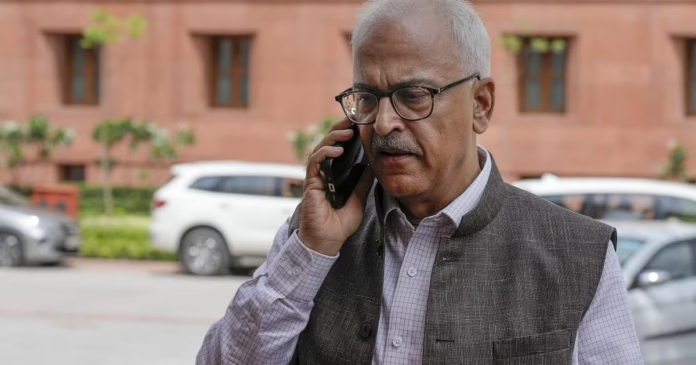The Kuki Organisation for Human Rights (KOHUR) has strongly condemned Manipur Governor Ajay Kumar Bhalla for engaging in discussions with Arambai Tenggol, a Meitei outfit that the Kuki group has labeled an armed extremist organisation responsible for widespread violence in the state.
The controversial meeting, which took place on Tuesday, has sparked outrage within the Kuki-Zo community, who argue that dialogue with Arambai Tenggol legitimizes a group they accuse of ethnic persecution, armed conflict, and destabilization in Manipur.
Meeting Aimed at Restoring Peace in Manipur
The meeting between Governor Bhalla and Arambai Tenggol leaders Korounganba Khuman and Robin Mangang was reportedly convened to seek the cooperation of the outfit in restoring peace and normalcy to the state, which has been reeling from ethnic tensions and violence.
Officials also indicated that discussions touched upon the potential surrender of weapons by Arambai Tenggol under specific terms and conditions set by the state administration.
KOHUR’s Strong Opposition to the Engagement
Following the meeting, KOHUR issued a statement condemning the Governor’s decision to engage with a group that they allege has been a key perpetrator of violence against the Kuki-Zo community. “KOHUR strongly condemns Manipur Governor Ajay Kumar Bhalla for holding a meeting with Arambai Tenggol, a group that has inflicted mass violence and ethnic persecution. Engaging with such entities undermines justice for the victims of their actions,” the statement read.
The Kuki organisation also expressed concerns that the meeting legitimizes Arambai Tenggol as a political stakeholder, despite the allegations of violence and persecution leveled against them. “The Kuki-Zo community will not remain silent while those responsible for our persecution are granted political legitimacy,” the group warned.
Who is Arambai Tenggol?
Arambai Tenggol is a Meitei nationalist outfit that has been accused of playing a major role in the ethnic violence and armed conflicts in Manipur. The group has been at the center of allegations of targeted attacks, and its activities have drawn criticism from Kuki-Zo organizations and human rights advocates.
Despite these accusations, Arambai Tenggol has maintained that its primary objective is to protect Meitei interests and has denied allegations of instigating communal violence.
Governor’s Appeal for Surrender of Arms
Following the meeting, Arambai Tenggol’s Public Relations Officer, Robin Mangang, stated that the Governor requested the group to lay down its arms as part of efforts to restore peace in Manipur.
This development has raised questions about the state’s approach to conflict resolution and whether engaging with groups like Arambai Tenggol at an official level sets a dangerous precedent for handling armed outfits in ethnic conflicts.
Political and Social Repercussions
The meeting between the Manipur Governor and Arambai Tenggol leaders has triggered strong reactions from political observers, human rights organizations, and community leaders.
✔ Political Legitimacy Concerns: The Kuki-Zo community sees this meeting as a dangerous move that legitimizes an outfit accused of instigating violence.
✔ Peace vs. Justice Debate: While some believe the dialogue is a step toward peacebuilding, others argue that engaging with groups implicated in ethnic conflicts undermines justice for victims.
✔ Kuki-Meitei Tensions: The meeting has exacerbated ethnic tensions between the Kuki and Meitei communities, potentially hindering reconciliation efforts in Manipur.
What’s Next for Manipur’s Peace Process?
The state of Manipur remains volatile, with ethnic violence, armed conflicts, and political tensions continuing to disrupt normal life.
Key Questions Moving Forward:
🔹 Will Arambai Tenggol agree to lay down arms as requested by the Governor?
🔹 How will the Kuki-Zo community respond to this political engagement with a group they view as hostile?
🔹 What role will the central government and law enforcement agencies play in ensuring fair and unbiased peace negotiations?
With Manipur’s future stability hanging in the balance, how the state government handles these tensions will determine whether peace can be achieved or if the crisis will deepen further.
The Kuki Organisation for Human Rights (KOHUR) has made it clear that they oppose any engagement with Arambai Tenggol, citing concerns over the group’s role in violence and ethnic persecution.
As Governor Ajay Kumar Bhalla seeks to restore peace through dialogue with armed groups, his approach remains controversial and divisive.


